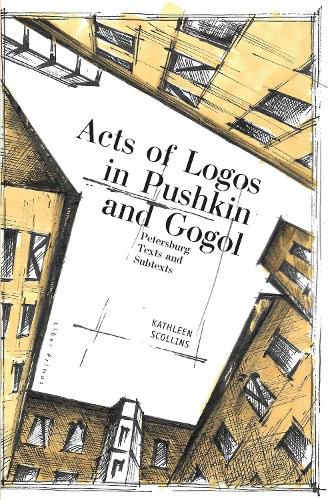Readings Newsletter
Become a Readings Member to make your shopping experience even easier.
Sign in or sign up for free!
You’re not far away from qualifying for FREE standard shipping within Australia
You’ve qualified for FREE standard shipping within Australia
The cart is loading…






Acts of Logos examines the 19th-century foundations of St. Petersburg’s famous literary heritage, with a focus on the unifying principle of material animation. Ever since Pushkin’s 1833 poem The Bronze Horseman, the city has provided a literary space in which inanimate things (noses, playing cards, overcoats) spring to life. Scollins’s book addresses this issue of animacy by analyzing the powerful function of language in the city’s literature, from its mythic origins-in which the tsar Peter appears as a God-like creator, calling his city forth from nothing-to the earliest texts of its literary tradition, when poets took up the pen to commit their own acts of verbal creation. Her interpretations shed new light on the canonical works of Pushkin and Gogol, exposing the performative and subversive possibilities of the poetic word in the Petersburg tradition, and revealing an emerging literary culture capable of challenging the official narratives of the state.
$9.00 standard shipping within Australia
FREE standard shipping within Australia for orders over $100.00
Express & International shipping calculated at checkout
Acts of Logos examines the 19th-century foundations of St. Petersburg’s famous literary heritage, with a focus on the unifying principle of material animation. Ever since Pushkin’s 1833 poem The Bronze Horseman, the city has provided a literary space in which inanimate things (noses, playing cards, overcoats) spring to life. Scollins’s book addresses this issue of animacy by analyzing the powerful function of language in the city’s literature, from its mythic origins-in which the tsar Peter appears as a God-like creator, calling his city forth from nothing-to the earliest texts of its literary tradition, when poets took up the pen to commit their own acts of verbal creation. Her interpretations shed new light on the canonical works of Pushkin and Gogol, exposing the performative and subversive possibilities of the poetic word in the Petersburg tradition, and revealing an emerging literary culture capable of challenging the official narratives of the state.